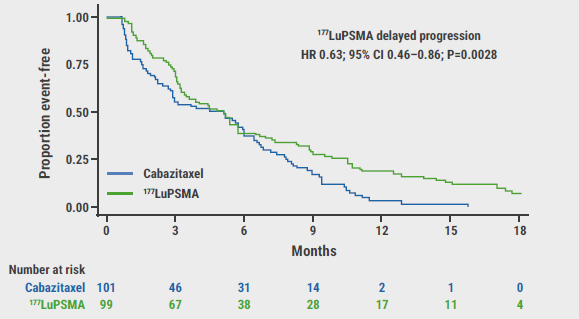"These findings are the first solid pieces of evidence to lead to a practice change," Dr. Phuoc Tran of Johns Hopkins Sidney Kimmel Comprehensive Cancer Center in Baltimore and Dr. Felix Feng of the UCSF Helen Diller Family Comprehensive Cancer Center in San Francisco, told Reuters Health in a joint email. "Among the final bits before full acceptance will be prospective evaluation of the Decipher platform gene signatures in ongoing trials we are running in NRG Oncology."
As reported in JAMA Oncology, the researchers conducted an ancillary study of men randomized to hormone therapy with bicalutamide or placebo in the phase 3 placebo-controlled NRG/RTOG 9601 salvage radiation trial.
Samples from 352 men (median age, 64.5; 89% White) with a median follow-up of 13 years passed microarray quality control, were assigned GC scores (scale, 0-1), and were included in the analysis.
The primary objective was to validate the prognostic ability of the GC for distant metastasis (DM), with secondary end points of prostate cancer-specific mortality (PCSM) and overall survival (OS).
On multivariable analysis, the GC (continuous variable, per 0.1 unit) was independently associated with DM (hazard ratio, 1.17), PCSM (HR, 1.39), and OS (HR, 1.17) after adjustment for age, race/ethnicity, Gleason score, T stage, margin status, entry prostate-specific antigen, and treatment arm.
The original planned analysis was not powered to detect a treatment effect interaction by GC score; however, the estimated absolute effect of bicalutamide on 12-year OS was less when comparing patients with lower versus higher GC scores (2.4% vs. 8.9%). This was further demonstrated in men receiving early salvage radiation at a prostate-specific antigen level lower than 0.7 ng/mL (- 7.8% vs. 4.6%).
Drs. Tran and Feng said, "Changes in practice patterns today have resulted in more men being found with positive pelvic nodes following surgery. One could argue that all men with positive nodes should get hormonal therapy, regardless, with postoperative radiation."
"Nonetheless," they said, "we would be cautious about extrapolating the results of our current study outside of the population studied in RTOG/NRG 9601."
The team will be validating the findings of the current study in an upcoming trial, RTOG/NRG 0534, and ongoing prospective randomized prostate cancer trials using the Decipher platform gene signatures, they added.
Dr. Sean McGuire of the MD Anderson Cancer Center in Houston, author of a related editorial, told Reuters Health, "This is a long-awaited prospective validation of a genomic assay with superior prognostic accuracy over traditional measures that the entire field of clinical prostate cancer management has been waiting for - especially in comparison to where things stand in breast cancer management."
"Prostate cancer management is finally entering the modern era of genomic prognostication," he continued. "This will usher in a new era of individualized medicine tailored to the prognosis of the patient, as has been occurring for breast cancer patients and others for a number of years."
"An update of ASCO guideline recommendations should encourage the use of this new tool in shared decision making between patients and clinicians in both the definitive and post-operative treatment settings," he said.
"A number of questions will undoubtably be refined in the near future, such as the benefit of using androgen deprivation therapy (ADT) in the definitive treatment of intermediate risk prostate cancer, as well as the use of ADT in the post-operative setting," Dr. McGuire concluded.
SOURCE: https://bit.ly/2NjZVtJ and https://bit.ly/2OHYPrY JAMA Oncology, online February 11, 2021.
By Marilynn Larkin
Posted on
Previous Article
« Bronchial thermoplasty benefits for uncontrolled asthma sustained at 10 years Next Article
Hyperglycemia tied to cognitive decline, vascular dementia »
« Bronchial thermoplasty benefits for uncontrolled asthma sustained at 10 years Next Article
Hyperglycemia tied to cognitive decline, vascular dementia »
Related Articles
August 31, 2021
Best of EAU: Updates on imaging and treatment of prostate cancer

© 2024 Medicom Medical Publishers. All rights reserved. Terms and Conditions | Privacy Policy
HEAD OFFICE
Laarderhoogtweg 25
1101 EB Amsterdam
The Netherlands
T: +31 85 4012 560
E: publishers@medicom-publishers.com

